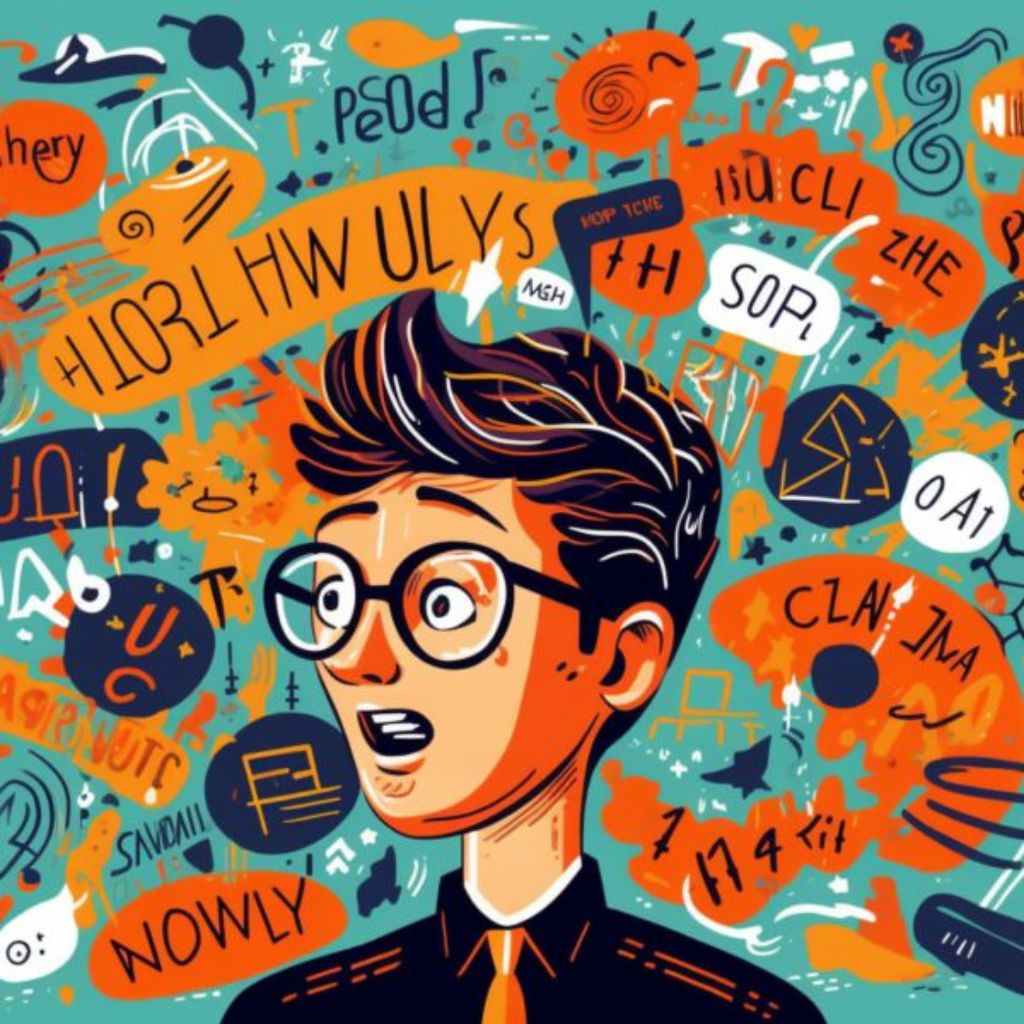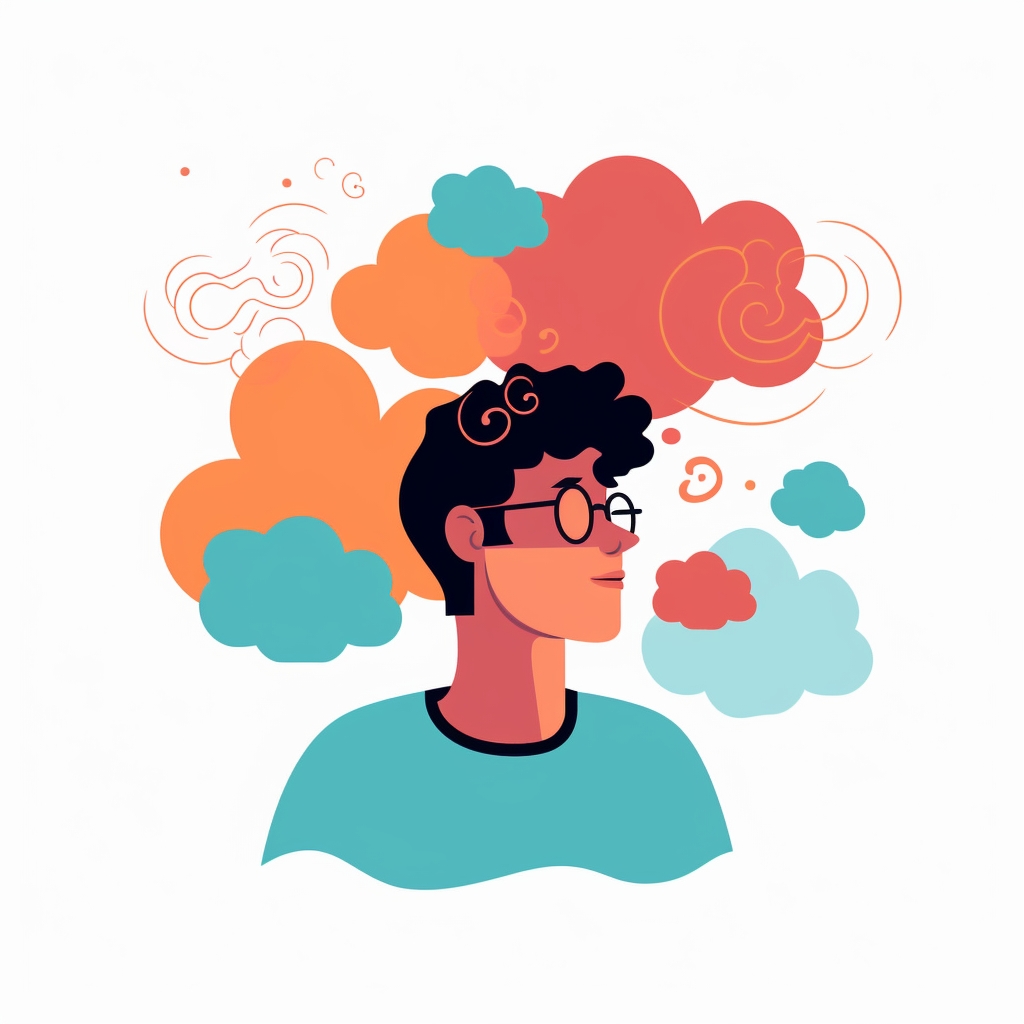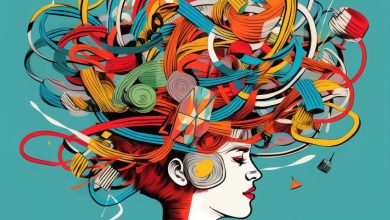Echolalia in ADHD: Is Echolalia a Symptom of ADHD?

🎧 Listen to this Article 🎧
Echolalia is a term used to describe the repetition of words or phrases spoken by another person. It’s a common behavior in individuals with neurodevelopmental disorders such as autism, Tourette’s syndrome, and Attention Deficit Hyperactivity Disorder (ADHD).
This article will focus on echolalia in ADHD and its implications. We’ll explore what echolalia is, why it occurs in individuals with ADHD, and how it affects their communication skills. We’ll also discuss some strategies that can help manage echolalia in individuals with ADHD.
If you or someone you know has ADHD and is experiencing echolalia, this article can provide valuable insights and practical tips to help manage this behavior. So, let’s dive in and explore echolalia in ADHD in more detail!
The Connection Between Echolalia and ADHD
Research suggests that individuals with ADHD may display echolalia as a way to process information and help them stay focused. Echolalia in ADHD is thought to be a coping mechanism that helps individuals with ADHD regulate their attention and stay engaged in conversation or activities.
In addition, some studies have suggested that echolalia may be related to the difficulties in executive function that are commonly seen in individuals with ADHD. Executive function refers to the cognitive processes that enable individuals to plan, organize, initiate, and regulate their behavior in order to achieve goals. Deficits in executive function can lead to difficulties with attention, impulse control, and other behaviors that are common in ADHD.
| Related: Echolalia and Autism

Furthermore, echolalia in adults with ADHD may also serve a social function. By repeating what someone else has said, individuals with ADHD may be attempting to establish rapport or build a connection with the other person.
It is important to note that echolalia alone is not a diagnostic criterion for ADHD, and not all individuals with ADHD exhibit echolalia. However, echolalia may be useful in identifying individuals with ADHD, particularly when combined with other symptoms such as inattention, hyperactivity, and impulsivity.
While the relationship between echolalia and ADHD is not yet fully understood, it appears that echolalia may serve a number of functions in individuals with ADHD, including helping them to regulate their attention and behavior, establish social connections, and process information.
Individuals with ADHD may sometimes repeat words or phrases (echolalia) as a way to focus, cope with their condition, or connect with others. While not diagnostic of ADHD on its own, echolalia, along with other symptoms like inattention and hyperactivity, might indicate ADHD and should be explored further by a professional. Research suggests echolalia could be a tool for managing ADHD-related challenges like attention regulation and social interaction.
If you are curious about the key distinctions between ADHD and BPD, our enlightening article holds the answers:
ADHD vs. BPD: What is the Difference between ADHD and BPD
What is Echolalia?
Echolalia is a speech disorder characterized by the repetition of words or phrases spoken by someone else, without understanding or intending to communicate meaning. It can be classified into two main types:
- Immediate echolalia, which involves repeating the words immediately after hearing them.
- Delayed echolalia, which involves repeating words or phrases after a delay.
In individuals with ADHD, echolalia may occur as a symptom of hyperactivity and impulsivity. They may repeat words or phrases they hear without fully processing their meaning or considering the social context. Echolalia in ADHD can also be a way for individuals to self-stimulate and regulate their sensory input, as well as to cope with anxiety or stress.

| Discover: ADHD Parenting Tips | Supporting Children with ADHD
Different Types of Echolalia
Here are the different types of echolalia that can be seen in individuals with ADHD:
Immediate Echolalia
This type of echolalia involves repeating words or phrases immediately after they are heard. In ADHD, this can occur as a way for the individual to process what they have heard and to help them remember it. For example, if someone says “Can you pass the salt?” an individual with ADHD may repeat “Pass the salt” before complying with the request.
Delayed Echolalia
This type of echolalia involves repeating words or phrases after a delay. In ADHD, this can occur as a result of the individual having difficulty processing and remembering information in real time. They may repeat something they heard earlier as a way to help themselves recall it. For example, an individual with ADHD may hear a word or phrase in a conversation and repeat it hours or even days later.
Palilalia
This type of echolalia involves repeating words or phrases multiple times in succession. In ADHD, this can occur as a result of the individual’s impulsivity and difficulty with self-regulation. They may repeat a word or phrase several times without even realizing they are doing it.
Scripted Echolalia
This type of echolalia involves repeating a pre-learned phrase or script. In ADHD, this can occur as a way for the individual to cope with social situations that may be overwhelming or anxiety-provoking. They may use a familiar script as a way to navigate a conversation or interaction.
| Related: Echolalia in Adults

Individuals with ADHD may exhibit different types of echolalia, including immediate echolalia, delayed echolalia, palilalia, and scripted echolalia. These behaviors can be a way for the individual to process and remember information, cope with social situations, or regulate their emotions. It is important for healthcare providers and loved ones to understand these behaviors and work with the individual to develop coping strategies that are effective for them.
Echolalia in ADHD involves repeating words or phrases others say, without fully understanding them. This can be immediate (right after hearing) or delayed (later recall). It helps process information, manage sensory input, or cope with anxiety. Different types include immediate (for memory aid), delayed (for recall), palilalia (repeated multiple times), and scripted (pre-learned phrases for social situations). While not diagnostic of ADHD, understanding these types can aid in recognizing and addressing this symptom.
| Learn more: ADHD Impulsive Break Up
Is Echolalia a Symptom of ADHD?
Echolalia is not a core symptom of ADHD (Attention-Deficit/Hyperactivity Disorder), but it can be present in some individuals with ADHD.
Is Echolalia a Sign of ADHD?
Echolalia is more commonly associated with autism spectrum disorder (ASD), and it is not one of the diagnostic criteria for ADHD. However, people with ADHD may exhibit echolalia as a part of their communication difficulties, which can be associated with their ADHD symptoms.
It is important…
…to note that echolalia is not always a sign of ADHD and can also be present in individuals with other neurodevelopmental disorders such as autism spectrum disorder or Tourette syndrome. It is also treatable through various therapies and interventions to improve communication skills and reduce repetitive behaviors.

Echolalia may also be present in individuals with other conditions, such as Tourette’s Syndrome, schizophrenia, or dementia. Therefore, if you or someone you know exhibits echolalia or other unusual speech patterns, it’s important to speak to a healthcare professional to determine the underlying cause and receive appropriate treatment.
Echolalia, repeating words/phrases others say, isn’t a core part of ADHD but can sometimes appear. Unlike in autism where it’s more common, echolalia in ADHD might relate to communication difficulties linked to their symptoms. It can also occur in other conditions. If you notice echolalia in yourself or someone you know, consulting a healthcare professional is crucial for proper diagnosis and management.
Is Palilalia a Sign of ADHD?
Palilalia is a type of echolalia characterized by the repetition of one’s own words or phrases. While it is not a definitive sign of ADHD, it can sometimes be present in individuals with this condition. Echolalia in ADHD is more commonly associated with the repetition of words or phrases spoken by others, rather than one’s own repetition. However, palilalia may occur in some individuals with ADHD, particularly when they are experiencing heightened levels of anxiety or stress. It is important to note that palilalia can also be a symptom of other conditions, such as Tourette syndrome, so a thorough evaluation by a qualified healthcare professional is necessary to make an accurate diagnosis.

Palilalia (repeating your own words) isn’t a key sign of ADHD, but it can sometimes show up. While ADHD-related echolalia usually involves repeating others’ words, palilalia might occur in some ADHD individuals, especially during increased anxiety or stress.
Impact on Communication

Echolalia in ADHD can significantly affect communication and social interactions for adults, leading to misunderstandings and difficulties in relationships. This condition involves the repetitive and automatic repetition of words or phrases spoken by others, making it challenging for individuals with ADHD to express their own thoughts and ideas effectively. Echolalia can also result in a lack of social reciprocity, making it harder for individuals with ADHD to engage in meaningful conversations and build positive relationships with others. Additionally, the overuse of echolalia can lead to frustration and misunderstandings, further hindering effective communication and social interactions.
Echolalia can lead to misunderstandings and difficulties in relationships because it makes it challenging for individuals to express their own thoughts and ideas effectively.
Have you ever mistaken anxiety for ADHD?
If you want to understand the key differences between these two conditions, we recommend reading “What is the Difference Between Anxiety and ADHD in Adults.“
How Common is Echolalia in Adults with ADHD?
The prevalence of echolalia in adults with ADHD is not well-established, as research on this topic is limited. However, some studies suggest that echolalia may be more common in individuals with ADHD than in the general population.
One study found that 30% of adults with ADHD exhibited echolalia, compared to only 5% of control participants without ADHD. Another study reported a higher prevalence of echolalia in individuals with ADHD who also had comorbid Tourette’s syndrome, which is characterized by involuntary movements and vocalizations.
| Read more: ADHD in Children | Effective Managing Strategies + Real-Life Stories

However, it is important to note that not all individuals with ADHD exhibit echolalia, and the severity and frequency of echolalia can vary widely among those who do. Additionally, echolalia may be more common in individuals with certain subtypes of ADHD, such as the hyperactive-impulsive subtype.
While echolalia in ADHD is not as well-studied as in other conditions, research suggests that it may be more common in this population than in the general population. However, it is important to recognize that echolalia is just one potential symptom of ADHD and does not necessarily indicate the presence or severity of the disorder.
While research is limited, echolalia might be more common in adults with ADHD than others, with studies suggesting rates around 30% compared to 5% in non-ADHD individuals. The severity and frequency vary greatly, and it may be more present in specific ADHD subtypes. While it’s a potential symptom, echolalia alone doesn’t diagnose or indicate ADHD severity.
Get ready to brew a whole new perspective on managing ADHD!
If you’re curious about the effects of caffeine on ADHD symptoms and seeking a jolt of knowledge, we’ve got just the article for you: “Caffeine and ADHD.”
Don’t let your curiosity stay decaf!
Coping Strategies and Treatment
Individuals with ADHD and echolalia may experience challenges in their daily lives, but there are coping strategies that can help them manage their symptoms. Here are some strategies:
Speech Therapy
Speech therapy can be a helpful tool for individuals with ADHD and echolalia. It can help them to learn how to express themselves effectively, and to reduce the frequency and severity of echolalia.
Cognitive-behavioral Therapy (CBT)
CBT can help individuals with ADHD and echolalia to identify and change negative thought patterns and behaviors. This can help them to manage their symptoms and improve their quality of life.
Mindfulness Techniques
Mindfulness techniques, such as deep breathing, meditation, and yoga, can help individuals with ADHD and echolalia to reduce stress and anxiety, which can exacerbate their symptoms. Mindfulness techniques can also help them to focus their attention and reduce distractibility.
Social Support
Having a supportive network of friends and family can be helpful for individuals with ADHD and echolalia. Support groups can also be a good source of information and understanding.
Assistive Devices
Assistive devices, such as communication apps or devices, can help individuals with ADHD and echolalia to communicate effectively and reduce frustration.

Individuals with ADHD and echolalia can benefit from a combination of strategies, tailored to their individual needs, to help them manage their symptoms and improve their quality of life.
While echolalia in ADHD can pose challenges, several strategies can help manage it. Speech therapy, CBT, mindfulness techniques, social support, and assistive devices can each play a role. Remember, the best approach will vary depending on individual needs, so finding a personalized combination is key to improving communication and quality of life.
Does your MBTI personality type put you at risk of ADHD?
Learn more:
ADHD and MBTI | A Comprehensive Overview
HealWiser’s Last Piece of Advice
Echolalia in ADHD can significantly impact adult communication and social interactions, leading to misunderstandings and difficulties in relationships. While echolalia is more commonly associated with the repetition of words or phrases spoken by others, palilalia may also occur in some individuals with ADHD. It is important to seek professional help and support if you or someone you know is experiencing echolalia in ADHD, as it can be a symptom of other conditions that require specific treatment. Additionally, treatment for ADHD, including medication and behavioral therapy, can help to reduce symptoms of echolalia and improve overall communication and social interactions. With the right support and treatment, individuals with ADHD and echolalia can develop effective communication strategies and build positive relationships with others.
Sharing your experiences can provide valuable insights and emotional support. So…
…share your experience with HealWiser and others in the comments section below this post.






Yes, it was so useful for me.
We’re so glad to hear that!